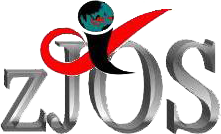
Mainframe Education
Since modernized become System z in early 2000 decade, mainframe capables to accommodate all modern applications as well as its legacies. With its essentialities in security, scalability, reliability, flexibility and mission-critical compliance, mainframe then becomes the cheapest server in term of price/performance. Many sites were migrating their server to mainframe System z. Not only for those the nature of mainframe (for business-critical) is required like in banking, govenrment and reservation, the System z’s excellent capability of its hypervisor technology (with z/VM operating system) is also getting popular in Linux hosting business sector. More over, since the world’s fastest z196 processor was launched in combination with zBX that capable to rehost System p and (theoritically) System i, mainframe System z would potentially become the most ideal server to pack ranches or plantations of servers in the enterprise into a single box.
Unfortunately, the lack of mainframe is in HR. Difficult to find HR with mainframe skill, especially for young IT graduates. This is a serious constraint. All the benefits and advantages of mainframe System z become meaningless without availability of HR in the marketplace. Many IT investing projects would be constrained to avoid mainframe from their assessment check list just for that simple reason, HR shortage.
Actually, avoiding mainframe from consideration just because of skill shortage is not quite wise, especially for those the essentialities of mainframe are required like in banking and government sites. Mainframe skill is not that horrible. You don’t need Einstein’s brain to have mainframe skill. It is easy to gain, as easy as other platform, anyone can learn it, even by self study. You don’t even need to be as good as vendor’s R&D and level-2 support personnel.
Remember, mainframe is a server. Like other servers, normally the most important skilled HR you need to run mainframe are admin, support and operation teams. Two admin and one support personnel for each major unique/native component (normally transaction server, database server and OS+network) per site would be a quite fair starting point, no matter how large the system is. To administer and support non-native components such as HTTP, email and other internet-related stuffs, mainframe skill is not a mandatory requirement. They will be backed up by mainframe OS+network admin/support.
Unless you plan to run all legacy (stoneage) applications, you won’t even need any single mainframe programmer. Even though you run native component such as CICS (transaction server), you can minimize the need of mainframe skill by avoiding the usage of mainframe traditional language like Cobol and PL/1 in your local/custom part development works. Use any modern languages instead.
Now we assume you have better understanding on HR requirement surrouding mainframe implementation. You can prepare your people to start self study on mainframe computing. IBM Academic Initiative provides free downloadable materials as well as mainframe access for anyone to learn mainframe System z. If you need to speedup their learning process, we are ready to help. You can just send them to us or let us find and develop people as a turn-key project for you.

